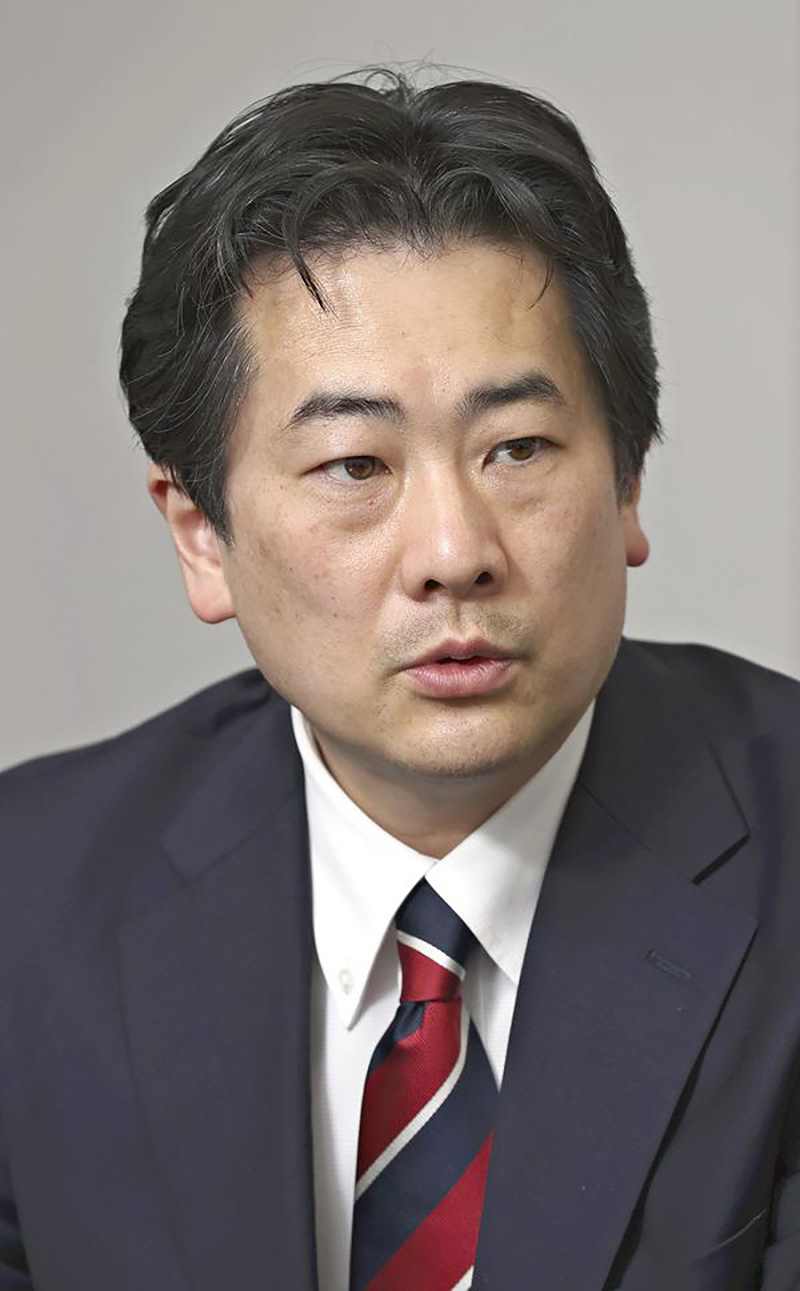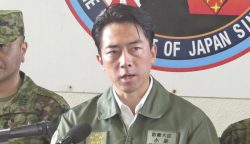Cybersecurity scholar: Russian invasion of Ukraine stirs up ‘cyberchaos’ of information warfare

Motohiro Tsuchiya, Professor at Keio University
12:35 JST, March 21, 2022
The ongoing information warfare amid Russia’s invasion of Ukraine is in a state of “cyberchaos,” according to Keio University Prof. Motohiro Tsuchiya, who specializes in international relations and cybersecurity. He stressed in an interview with The Yomiuri Shimbun that the Japanese government should not only toughen cybersecurity, but also thoroughly examine the ongoing cyber warfare and extract lessons from it, so as to better cope with similar contingencies in the future. The following are excerpts from the interview:
Information warfare is launched by nations engaged in conflict to incite public opinion domestically and abroad, and to sow confusion in the adversarial country. In Russia’s invasion of Ukraine, however, citizens and hacker groups have also taken part in information warfare in cyberspace, giving rise to the ungoverned situation of “cyberchaos.”
When Russia invaded the Crimean Peninsula in southern Ukraine in 2014, it paralyzed the region’s critical infrastructure with cyber-attacks, then created confusion in local communities by circulating fake information, eventually annexing the territory with a minimal use of military power. Having had such a successful experience, the latest state of affairs has probably been a miscalculation by Russian President Vladimir Putin.
At the onset of its invasion of Ukraine, Russia initially asserted it was not targeting any “civilian objects.” As many images showing civilian targets such as housing complexes being attacked by Russian troops circulated around the world, Russia’s lies were soon laid bare. Social media platforms have come into wider use than back in 2014, with vivid, on-the-spot video taken by civilians spreading widely.
The hacker group Anonymous, which operates in various parts of the world, has also taken part in the cyber warfare, by declaring it was making cyber-attacks targeting the Russian government. Consequently, the Presidential Executive Office of Russia and the country’s media came under fierce cyber-attacks.
Conversely, Conti, a hacker group known for using ransomware, vowed to carry out cyber-attacks on Western countries to retaliate. This stratum of third forces has grown thicker, which has also raised the amount of heat generated in data centers.
On the other hand, Ukraine, smarting from its failure in 2014, had learned its lesson and moved ahead with carefully enhancing its readiness for information warfare.
Ukrainian President Volodymyr Zelenskyy has spread worldwide the image of being a president who is with the people. For instance, he has posted on social media videos of himself standing in the streets of Kyiv. Also released in succession by Ukraine are videos with purported Russian soldiers saying that they don’t know what they are fighting for. These videos are likely aimed at sapping the morale of the Russian side, thus heightening anti-war sentiments.
Wartime information warfare has been waged since bygone days. During World War II, it was carried out mainly via propaganda using such means as flyers, leaflets and radio. During the Vietnam War, TV spread throughout society, and during the Gulf War, on-the-spot reports by CNN influenced public opinion around the world.
The latest invasion is the first full-scale war since social media has become widespread. As anyone has become able to transmit information, a massive amount of accurate information and misinformation has been in circulation. The amount, I think, by my instinct, has topped more than 100 times of what was in circulation during the 2003 Iraq War.
Amid such circumstances, fact-checking organizations around the world have started taking action to detect fake information. Bellingcat, a globally operating, private investigative organization, verified information that was reckoned to be part of a “false-flag operation” by Russia, intended to come up with a pretext for invading Ukraine. As the organization analyzed several videos that Russia had asserted show that residents in areas controlled by pro-Russian forces have been under attack by Ukraine, it was found that the videos were highly likely to be fake.
The fact that ordinary people have become able to gain easy access to information obtained by satellites in orbit has also been a big change. This allows people to confirm the truth or falsehood of information, even if they cannot enter the actual battlefield, so these tools are being utilized for checking facts.
In response to a request from the government of Ukraine, U.S. tech giants have taken action against Russia’s state media by blocking their outlets so that the videos they post cannot be viewed. These same tech giants were criticized for having furthered the 2021 storming of the U.S. Capitol by supporters of then U.S. President Donald Trump, so these recent actions have come just when the ethics of social media platforms was being questioned.
China is also paying close attention to the situation in Ukraine. If the country decides to launch an invasion of Taiwan, China will unleash information warfare, as Russia did, including transmitting fake information, not only against Taiwan, but also against Japan and the United States. Even so, Japan cannot release false information to retaliate. It is because accurate information serves as the foundation of democracy. With the release of false information, people will no longer be able to place their trust in their government.
Japan’s governmental organizations need to enhance their cybersecurity so as not to have their accounts seized by hackers, which could turn them into sources of disinformation. In contingencies, they would probably have to deliver, domestically and abroad, facts which they have carefully checked and confirmed. The government should thoroughly examine the latest information warfare in detail and extract lessons.
— This interview was conducted by Yomiuri Shimbun Staff Writer Takaaki Suzuki.
■ Motohiro Tsuchiya
Professor at Keio University
Tsuchiya was born in 1970. He graduated from the Faculty of Law at Keio University in 1994 and obtained a Ph.D. from the university in 1999. He specializes in international relations and cybersecurity. He has also served as a member of the government’s Information Security Policy Council. He has written books including “Cyber Security and International Relations” and “Cyber Great Game.”
Top Articles in Politics
-

Japan PM Takaichi’s Cabinet Resigns en Masse
-

Sanae Takaichi Elected 105th Prime Minister of Japan; Keeps All Cabinet Appointees from Previous Term
-

Japan’s Govt to Submit Road Map for Growth Strategy in March, PM Takaichi to Announce in Upcoming Policy Speech
-

LDP Wins Historic Landslide Victory
-

LDP Wins Landslide Victory, Secures Single-party Majority; Ruling Coalition with JIP Poised to Secure Over 300 seats (UPDATE 1)
JN ACCESS RANKING
-

Japan PM Takaichi’s Cabinet Resigns en Masse
-

Japan Institute to Use Domestic Commercial Optical Lattice Clock to Set Japan Standard Time
-

Israeli Ambassador to Japan Speaks about Japan’s Role in the Reconstruction of Gaza
-

Man Infected with Measles Reportedly Dined at Restaurant in Tokyo Station
-

Man Infected with Measles May Have Come in Contact with Many People in Tokyo, Went to Store, Restaurant Around When Symptoms Emerged



















